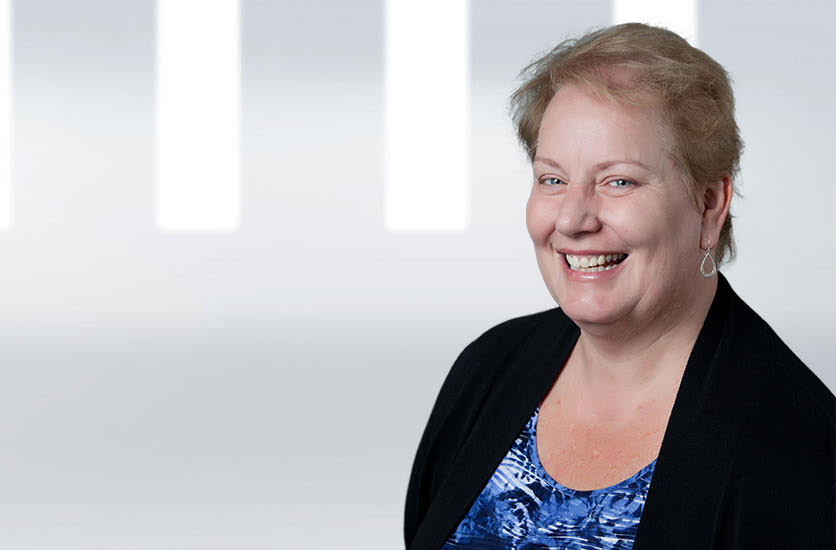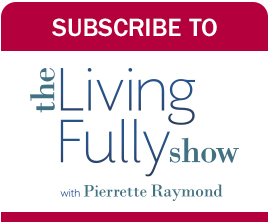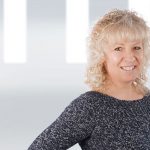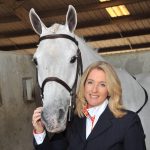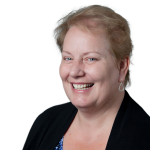 Having dyslexia and living with its challenges has been one of the greatest hurdles that Heather Cameron has had to face. She has dealt with the lack of confidence that it brings, as well as the stigma that comes with it too. She has not, however, let it define her. Being a business coach who speaks and teaches in front of large groups of people means she has to be open with her dyslexia and encourage those around her to be accepting and non-judgemental. As her parents age and find themselves with life threatening conditions and dementia, she has become their caregiver and spends much of her time advocating for their care and well-being. She is strong, determined and is truly living her life fully. She is this week’s Woman of the Week.
Having dyslexia and living with its challenges has been one of the greatest hurdles that Heather Cameron has had to face. She has dealt with the lack of confidence that it brings, as well as the stigma that comes with it too. She has not, however, let it define her. Being a business coach who speaks and teaches in front of large groups of people means she has to be open with her dyslexia and encourage those around her to be accepting and non-judgemental. As her parents age and find themselves with life threatening conditions and dementia, she has become their caregiver and spends much of her time advocating for their care and well-being. She is strong, determined and is truly living her life fully. She is this week’s Woman of the Week.
Tell us a little about yourself.
I was born in Montreal, the youngest of three and the only girl. My family is full of very strong personalities and we were always encouraged to share our thoughts and opinions. Nothing like a healthy debate! I was very fortunate to have parents who believed their kids could do and be anything and that it didn’t matter if you were a boy or a girl.
Our home environment was unusual, as my father ran his business from our house. That wasn’t very common at the time. It was a true family business—my mother was the bookkeeper, my aunt the secretary, and several other relatives were employees. As a result, I had an early introduction to entrepreneurship. During my teens, I never thought twice about answering the business phone or dealing with customers.
But reading and writing was another matter because I have dyslexia. I vividly remember getting hearing tests, eye tests and various IQ tests to figure out what was “wrong” with me. This was at a time when there was little understanding of learning disabilities and how to deal with them. I remember walking alone down a long hallway to go to remedial reading classes. Being singled out at a young age was really difficult on my confidence and self-esteem.
Because my parents believed in me and my abilities, I made it through elementary school and CEGEP, and I graduated from McGill with a Bachelor of Engineering. After that, I swore I’d never go back to school again. (Never say never!) One day, after I had graduated from McGill, my mother ran into my elementary school remedial reading teacher. When my mother told her that I had become an engineer, the teacher almost fell off her feet.
Over the 20+ years, I had an amazing career in high tech. I started in Montreal and then moved to Ottawa in 1990. I was given opportunities to travel all over the world and to meet amazing people. In 2000 I moved to Sydney, Australia to work as an expat. It was an exciting but sometimes difficult experience. I was in paradise, but being on the other side of the world, away from everyone you know, can be very lonely. But I eventually found my social circle and the work was interesting. Then the tech bubble burst. Layoffs started, the division I was working in was sold, and I was sitting on the other side of the world not knowing what would happen next. I remember actually living week by week, not knowing if I was staying or going. I returned to Canada in the fall of 2002 and I was laid off a few months later.
Newly back in Canada, I was unemployed, enrolled in placement courses, and trying to figure out what was next in my life. In March 2003 there was a serious accident in my family and it made me realize that life is fragile. I needed to find my passion and it wasn’t high tech. So I went back to school, got a Diploma in Adult Education from St. Francis Xavier University and started my own business in 2004 doing training and facilitation. I still remember the amazing feeling of getting my first cheque for something I had done myself and of winning a contract that took me to Zambia three times.
Remember I said I’d never go back to school? In 2008, with the encouragement of one of my clients, I did go back a second time. I received my Post-graduate Certificate in Executive Coaching from Royal Roads University, and the focus of my business moved to business coaching.
The last five years of my life have been particularly challenging as I’ve become my parents’ main support and caregiver. Taking care of your parents is so many things—overwhelming, exhausting, intense, lonely—and yet it is a privilege. It’s humbling, it’s loving, but it’s hard.
Who inspires you in your life and why?
My parents. My father because he was a serial entrepreneur. If he could, he’d still be working today. He owned a gas station, a plumbing and heating business, and then, at 64, he bought a maple syrup farm and ran that until he was 84. He taught us to work hard, to do the best job you can, to love what you do, and to commit to finding the solutions to problems. He taught me to never undervalue myself and to always charge what I’m worth. As well, he was always the first to step up and help someone else in need and was amazing in a crisis.
My mother taught us to love our life and to be out there doing things. She always said, “If you have an opportunity to go out and have fun, do it. The dishes and laundry will still be here when you get back.” She was an independent woman who worked as part of dad’s businesses and supported his entrepreneurial spirit. They both believed that you could be anything you wanted to be. And they both always kept a sense of fun and adventure in our lives.
What have been some of the biggest challenges you have had to overcome in your life?
One of the biggest challenges that I’ve had to deal with is having dyslexia in a world where people often judge you on your ability to write. As much as we might believe that we accept learning disabilities, we don’t. It’s still okay for someone to be poor at math, but it’s not okay to have issues with writing. It’s something I face on a daily basis, and at times it has really affected my self-confidence. I’m very open about it, but people still don’t really understand what it’s like. It takes a great deal of effort to make sure I’m getting my message across, to catch mistakes, to find someone to proof what I write, and I always have a sense of insecurity that I haven’t fixed everything.
Over the last five years my biggest challenge has been becoming my parents support and caregiver and trying to grow my business at the same time. In the last 18 months I’ve had to move my parents four times due to their changing health conditions. During that time, I also had to sell their maple syrup farm. Let me tell you, a farm can hold a great deal of “stuff”—65+ years of “stuff”. And selling a farm isn’t like selling a home. It’s selling a home and a business at the same time. There are many layers of complications that I’m still discovering as I prepare to do their 2016 taxes.
My father’s health is very complicated. On top of all the moves, he was hospitalized four times last year with life-threatening conditions. We are also losing my mother bit by bit to dementia, which is a heartbreaking illness. Fortunately, I’ve been able to keep my parents together. They are still very attached to each other and hold hands often. The amount of time I spend on the phone advocating for their care is amazing. I’ve come to realize that I have “caregiver” brain, and I’m learning to give myself the care I need to function.
One additional challenge is finding my support system shrink. I’ve been surprised at how people react to a caregiver and the challenges they are dealing with. Some people step up and others step away. Aging and its associated issues are part of life and, unfortunately, we have a culture that doesn’t want to acknowledge that. That’s why a group like Women Living Fully is so important.
What did you do to move through them? What did you learn?
I’ve learned to be open about being dyslexic and to find resources to help. I stand up regularly in workshops or presentations and tell people right off that I’m dyslexic, so my flip-charting isn’t going to be perfect. I’ve learned that dyslexia does not define me. It’s part of me, and it has its own unique benefits as well as challenges.
Over the last five years I’ve learned to not sweat the small (and medium) stuff, as life is full of insignificant things that we stress about. I’ve learned to be kind to myself and to be proud of the support I’ve given my parents. I’ve learned that my needs have changed and who I need in my life has changed. I’m still moving through this. It’s an ongoing process.
What are you most proud of?
I’m proud of having a successful career and of having broken boundaries, both for women and for people with learning disabilities. While working in Australia, I was the first woman in my company to reach senior management level in our entire Asia-Pacific division.
As well, I’m proud that I’m supporting my parents, as they have always supported me.
What do you want younger women to know?
They can do anything they want. They don’t need to settle or let someone else’s opinion hold them back. They don’t have to be just one thing. They can grow. They can change their career as many times as they need/want to. They can follow their passions and be brilliant.
What does living fully mean to you?
I’m redefining that at the moment for myself. It means being kind and respectful to people. It means being bold and finding joy. It means “doing” and learning and contributing to the world. It means challenging myself and not holding back. It means truly being there for each other in the good times and the bad.
Favourite quote.
“If you think you can do a thing or think you can’t do a thing, you’re right.” – Henry Ford

